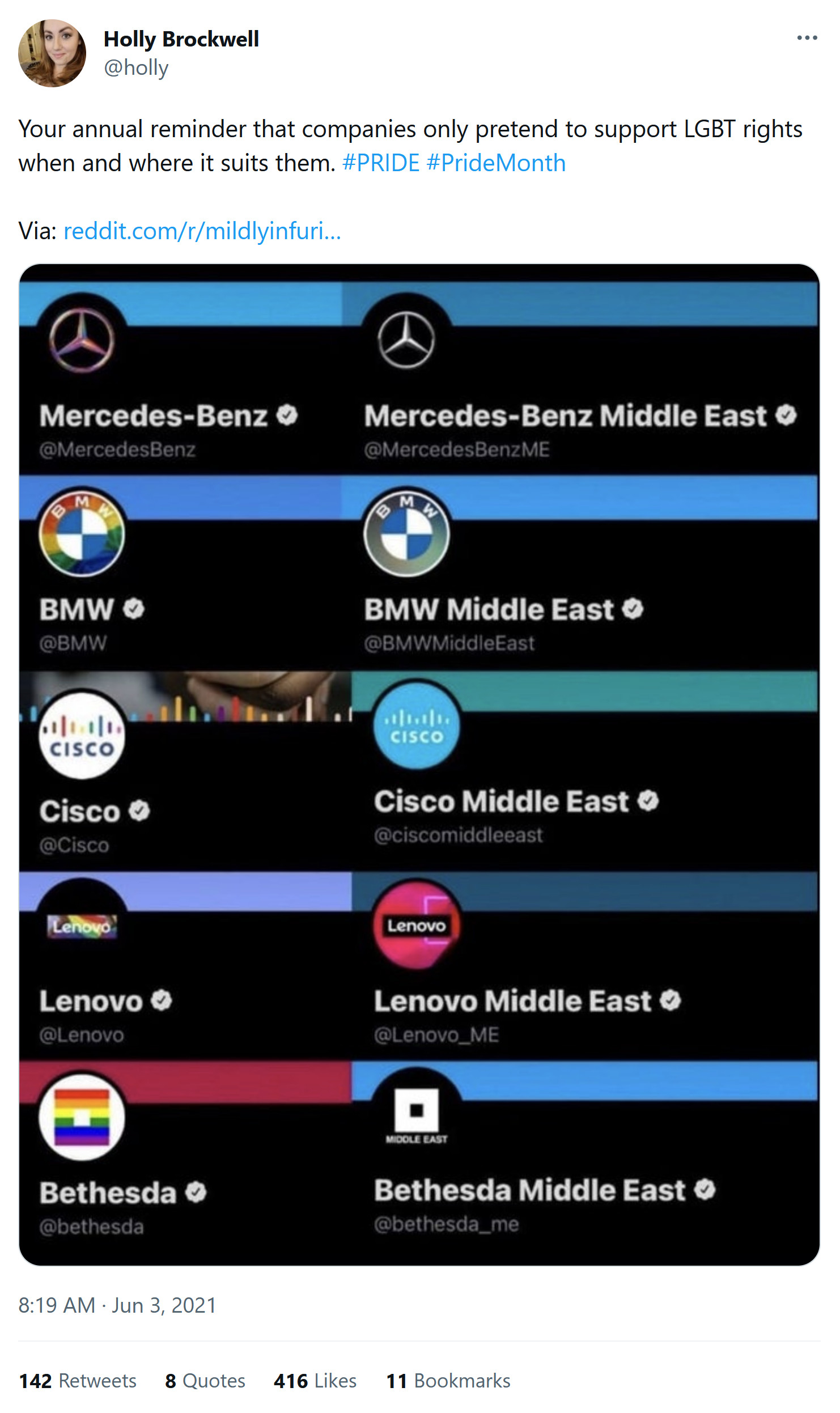UNEXPECTEDLY! The Spectacular Corporate Hypocrisy on Gay Rights and Uganda.
Uganda modified its recent laws punishing homosexuality, and so it’s no longer a crime to say you’re gay. But it is still a crime to exhibit any form of homosexual desire:
Existing, colonial-era law in Uganda already allows life sentences for homosexuality, but no one has been convicted of consensual same-sex relations since the country gained independence from Britain in 1962. The new bill reaffirms that punishment and allows prison terms of up to five years for actions such as touching another person “with the intention of committing the act of homosexuality.”
Uganda also kept the provision that included a “death sentence for what it calls ‘aggravated homosexuality,’ acts that include same-sex intercourse with a minor or an HIV-positive person convicted for the second time for intercourse with someone of the same gender.”
I think we can all agree that an adult having sex with a minor is a serious crime; here in the U.S., as of 2018, the average sentence for offenders convicted of statutory rape was 30 months. Hopefully we all agree that those who are HIV-positive have a responsibility to inform their partners and take appropriate precautions. But to enact the death penalty against HIV-positive Ugandans is almost absurd, as HIV has already been a de facto death penalty for roughly 1.4 million Ugandans since the advent of the virus. This is not all that far from criminalizing attempted suicide and then punishing it with the death penalty.
Even those with the most cursory knowledge about Uganda know the country faces some real problems. As the CIA World Factbook summarizes, Uganda “faces numerous challenges that could affect future stability, including explosive population growth, power and infrastructure constraints, corruption, underdeveloped democratic institutions, and human rights deficits.” Uganda ranks 166th out of 191 in the United Nations’ annual ranking of human development, 125th out of 139 countries on the rule of law, 142nd out of 180 in corruption, and 121st out of 163 in peace and stability, and ranked 115th out of 141 in pre-Covid economic competitiveness. Roughly one in five Ugandans lives below the poverty line. Roughly one in five children between the ages five and 14 are in the workforce instead of school. As of 2019, just 17 percent of the country’s rural areas had access to electricity. As the Factbook states, “Uganda is subject to armed fighting among hostile ethnic groups, rebels, armed gangs, militias, and various government forces that extend across its borders.”
And this is all separate from the Ebola-virus outbreak.
The heterosexuals of Uganda have their own major challenges as well:
“Except in urban areas, actual fertility exceeds women’s desired fertility by one or two children, which is indicative of the widespread unmet need for contraception, lack of government support for family planning, and a cultural preference for large families. High numbers of births, short birth intervals, and the early age of childbearing contribute to Uganda’s high maternal mortality rate.”
Add it all up, and Uganda looks like a deeply troubled country beset by poverty, instability, violence, lack of infrastructure, insufficient educational and economic opportunities, corruption, and ineffective government policies. And in this light, gay and lesbian Ugandans start to look like a very convenient scapegoat for the state. (For example, the challenges connected to the country’s high birthrate are really not the fault of the country’s gays and lesbians.)
With so many problems, you might wonder who would want to do business in a place like Uganda. The answer turns out to be quite a few multinationals: Coca-Cola, Unilever, Diageo, Citibank, Hilton and Sheraton hotel chains and . . . wait for it . . .
Anheuser-Busch InBev. Yes, the same company that is seeing plummeting sales of Bud Light over the perception that it jumped into the culture wars in the United States also operates breweries, factories, and distribution networks in a country that criminalizes homosexuality. Call me crazy, but I think I see some inconsistencies there.
Related: Corporate accounts reflect Pride Month (but there are exceptions).

